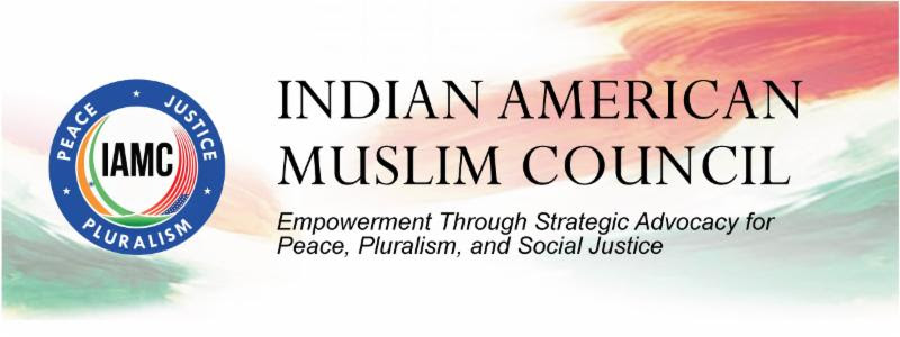PRESS RELEASE
WASHINGTON, D.C., – The Indian American Muslim Council, an advocacy group dedicated to safeguarding India’s pluralist and tolerant ethos, has asked The Economic Times newspaper to withdraw defamatory and false allegations it has published against the organisation.
The allegations in “Tripura violence: Police identifies social media conspiracy posts originating outside India,” authored by Bikash Singh and published on the Economic Times website on November 15, 2021, were “patently false… with no basis in fact,” IAMC Executive Director Rasheed Ahmed wrote in a letter to the newspaper’s editors.
Citing unnamed government sources, the news article alleged that IAMC had “links with the Jel network of Pakistan and of supporting Taliban and lobbying with foreign organizations against India in connivance with the ISI.”
Ahmed wrote: “We categorically state that IAMC is not linked with JEI (Jamaat-e-lslami) in Pakistan, it does not support the Taliban, and it has no connection with the ISI. The article falsely claims IAMC is part of an “anti-India” lobby.”
Noting that the Economic Times report “offered no evidence in support of its defamatory claims,” Ahmed wrote the newspaper’s “mala fide conduct violates the essential principles of journalism: fairness, balance and truth” and had “damaged IAMC’s reputation and goodwill globally.”
Ahmed also criticised the newspaper for failing to “reach out to IAMC before echoing the allegations from unnamed sources.” The newspaper’s reporter “failed to contact” IAMC, a bona fide nonprofit organization registered in Washington, D.C., although its phone number and email ID were listed on its website, Ahmed wrote.
As such, Ahmed urged the newspaper to “immediately withdraw the false and fabricated allegations… and issue a public apology to IAMC.”
The letter has been sent to The Economic Times Executive Editor Bodhisatva Ganguli and Associate Executive Editor Javed Sayed.
Since its founding in 2002 IAMC had been “widely recognized in the US Congress, such as from US Senator Ed Markey, Congressman Andy Levin and Congresswoman Marie Newman, the US Government and other stakeholders for its advocacy on human rights, civil and political liberties, and religious freedom in India and the U.S,” Ahmed wrote.
Over two decades, no law enforcement agency either in the US or in India had ever investigated or accused IAMC “of any wrongdoing or associating with any foreign government or its agencies or terror groups,” Ahmed wrote.
IAMC had addressed the National Prayer Breakfast as part of a global panel of human rights defenders organized by the U.S. Department of State in February 2020. IAMC works with global organizations such as Amnesty International, Human Rights Watch and The Advocates for Human Rights, among others.
Ahmed cited IAMC’s long standing association with the United States Commission on International Religious Freedom (USCIRF), whose Chair Nadine Maenza and Commissioner Anurima Bhargava have addressed several briefings organized by IAMC.
The Economic Times‘s baseless attacks against IAMC only serve to diminish the publication’s credibility and validate India’s 142nd ranking in the World Press Freedom Index

